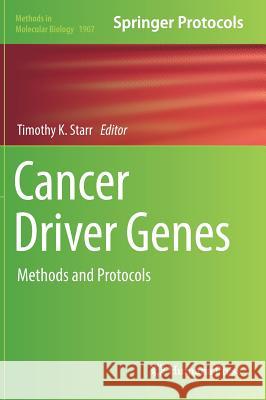Cancer Driver Genes: Methods and Protocols » książka
topmenu
Cancer Driver Genes: Methods and Protocols
ISBN-13: 9781493989669 / Angielski / Twarda / 2018 / 214 str.
Kategorie BISAC:
Wydawca:
Humana Press
Seria wydawnicza:
Język:
Angielski
ISBN-13:
9781493989669
Rok wydania:
2018
Wydanie:
2019
Ilość stron:
214
Waga:
0.61 kg
Wymiary:
25.4 x 17.78 x 1.42
Oprawa:
Twarda
Wolumenów:
01
Dodatkowe informacje:
Wydanie ilustrowane











